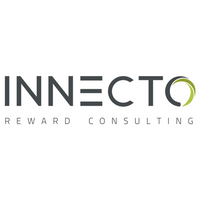Four steps to help you quantify the value of your people

And yet what perhaps none of us realise, is that there has been a substantial shift over the years and on average 80% of an organisation’s intangible assets are now its people, which is exactly what HR is responsible for.
Intangible assets are typically seen as including things like brands, reputation and relationships and although companies often value their brand and reputation, the area of valuing people is a new and developing one. With that in mind, it's perhaps not surprising that the CIPD has teamed up with the Chartered Institute of Management Accountants (CIMA) in an initiative called ‘Valuing your Talent’ (VyT).
It is not in any way being suggested that ‘human capital’ should start to appear on the balance sheet, (there are some things which are just too hard to quantify) but what VyT is seeking to do, is to create a much more integrated thinking approach to developing some key human capital measures.
The key focus of VyT is to help organisations learn how to value the contribution by their employees to its overall performance. As evidence suggests, and what good leaders instinctively know anyway, is that there is a very strong link. Companies in the upper quartile of engaged employees, on average, grow their top lines 250% faster than those in the lower quartile, and their profits 300% faster, as well as having lower staff turnover and higher customer satisfaction, as per leadership expert Kevin Murray.
The missing link to all of this though is how do we get those engaged employees, so we can create an organisation that people want to work for, harness the employee’s full potential and start to see that value of talent rising?
The best plan of action is to start with your performance management, your total reward programme and your communications. Here are some simple steps on how businesses can start to improve their engagement:
1) Get your pay sorted
Pay is a hygiene factor for most people. It doesn’t have to be the highest pay in the market but it does have to feel fair. Open, transparent, market driven and internally equitable pay is the foundation to build engagement.
2) Think about the purpose of your business
Steve Jobs said about Apple that its mission was to “remove the barrier of having to learn” technology. It wasn’t about making money – that was the nice side effect. You and your board may know the company’s purpose but are you communicating it clearly in your conversations and internal communications?
3) Use more than just financial measures
Are you backing up that purpose with how you measure success and reward people. Are you using more than just the business’ financial performance as a measure of success e.g. total shareholder return (TSR) or EBITDA? Think about the metrics you use for variable pay schemes and the objectives you measure against in performance reviews.
4) Finally, real time feedback
The way we provide input and feedback is changing. Annual (at best) engagement surveys and annual performance reviews have had their day. They provide a snapshot in time but don’t offer any real insight into employees’ views. In the same way that people use TripAdvisor to share their opinions on travel, they want to do the same thing at work.
In the age of the millennial, where employees are more likely to move on if they're not engaged these four steps will help increase your engagement and hopefully get you on the way to seeing an improvement in the value of your talent.
Jenny Carter is head of support services at Innecto Reward Consulting.
This article was provided by Innecto Reward Consulting.
Supplied by REBA Associate Member, Innecto Reward Consulting
The UK’s largest independent pay and reward consultancy, transforming pay into performance.







